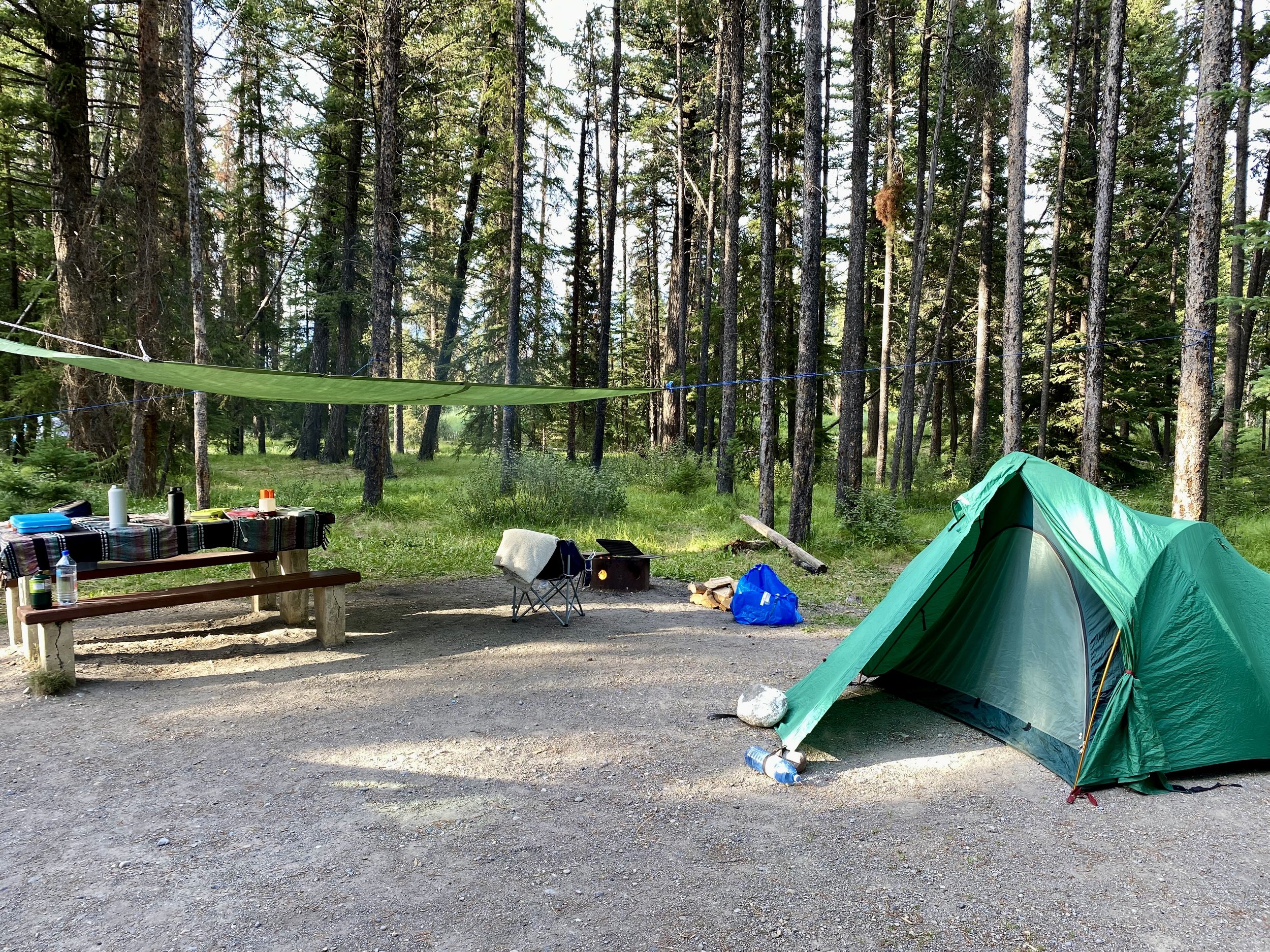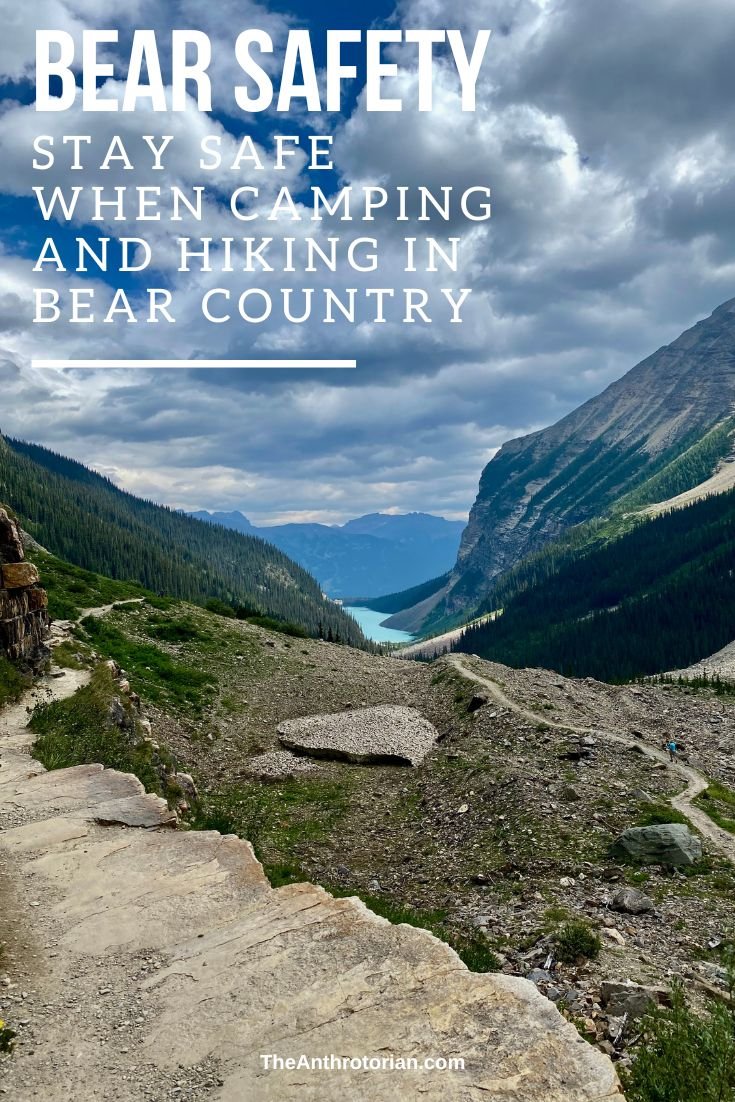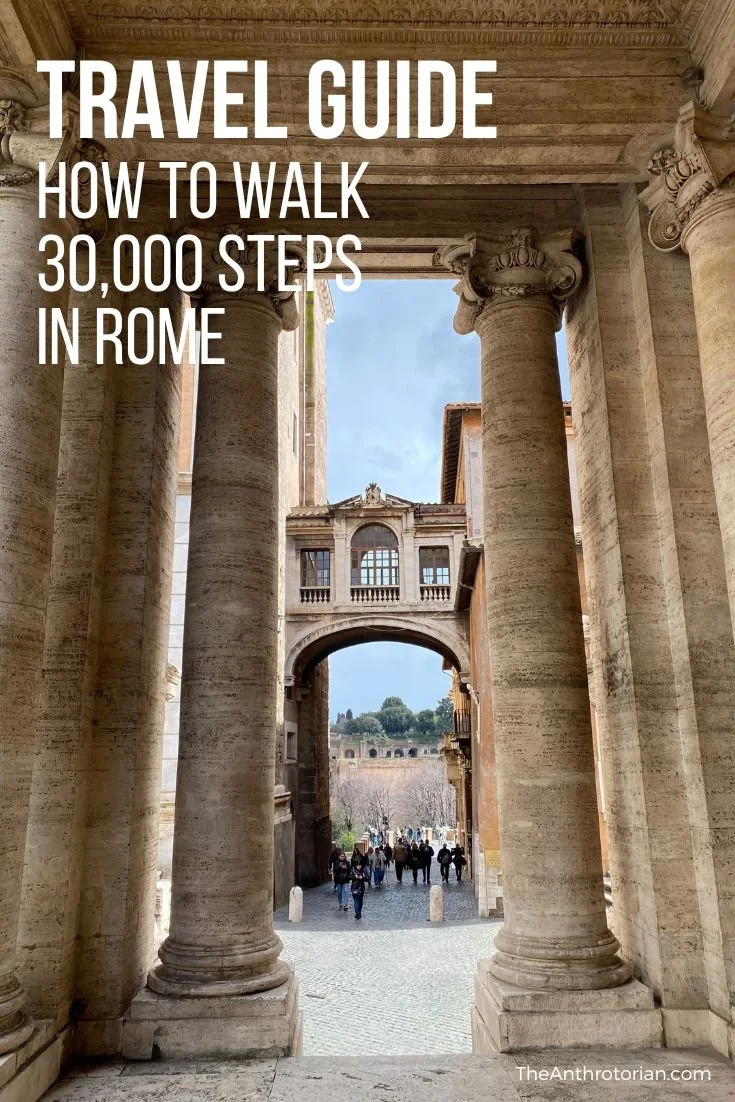“But, what about the bears… ?”
This is a question I get asked a lot when I talk about camping and hiking in the Rocky Mountains — especially when I am going on solo adventures.
Yes, bears live in the wilderness in a lot of North America, but the fear of running into one shouldn’t dissuade you from getting outside!
Here’s what you need to know to keep yourself, and the bears, safe.
Important things to know about bears
Bears do not go out of their way to attack, track, or hunt humans. What they are attracted to is food, or something that might be scented like food.
Unless you are doing things that will attract bears, you are unlikely to ever encounter one. You may see bears on the side of the highway, but rarely will you see them near your tent or on a hiking trail.
If you do encounter a bear and it is aggressive, follow these steps.
How to keep your hikes bear free
Make noise
You can attach a bear bell to your bag, but any human noises work just as well. Talk, sing, clap your hands, or tap the side of your water bottle.Carry bear spray
Using bear spray should be considered a last resort, but it should still be included in your hiking toolkit. Basically, pepper spray on steroids, the one rule to remember is that if you are hiking with bear spray is that it should never be in your pack, but on your belt, holster, or somewhere else easy to grab. It is no use to you if it is blocked by a zipper. Parks Canada has a great tutorial on how to use bear spray here.Be trail aware
Be aware of places on the trail that might be more attractive to bears and make more noise when coming upon these areas. These areas include streams and rivers, or areas that have berry bushes.Watch for scat
One of the biggest (and smelliest) signs that a bear is in the area? Bear scat. If you see scat on the trail, be extra aware. Here is an example of what you are looking for.Hike on busy trails
If you are hiking solo, it is smart to choose trails that have some traffic on them. Animals don’t like being around people, so if the trail is used by a fair amount of people, on a regular basis, bears will stay away.Don’t leave food or garbage on the trail
You will definitely be eating some snacks while on your hike. Just make sure you pick up all your crumbs and garbage. You don’t want to leave something on the trail that will attract bears.Visit a parks office or visitor center
Before you go on any hike, visit the nearest parks office or visitor center to get the latest updates on bear sightings so that you know which areas to steer clear of.
How to keep your campsite bear free
Nothing with scent in the tent
You have probably heard the “no food in the tent” rule many times before, but it’s not just food that can attract bears. Nothing with a scent should be inside your tent at any time. This goes for toothpaste, lotion, perfume, etc. All toiletries should be locked in your car along with your food.Make sure your tent and sleeping gear is separate from food in your vehicle
Keep all food, dishes, your camp stove, etc., in a different part of your vehicle than your tent, sleeping bag, etc. is stored while traveling. You don’t want to accidentally spill anything on your sleeping gear.All food or scented items in your car or locked bins
If you are away from your campsite, or sleeping, all cooking gear, garbage, and food should be locked in your vehicle. This includes tablecloths, water bottles, coolers, etc. Nothing should be left out. If you are not camping with a vehicle, lock your food up in a locker, or hang it from a tree a safe distance away from where you are sleeping.Don’t dump dirty water near your site
Any water that you use to wash dishes, your hands, your face, or brush your teeth with should not be dumped anywhere near your campsite, as it can contain food bits or scented soap that could attract bears. Many sites have dishwashing sinks near the bathrooms that you can dump the water in, or you can dump it down the toilet in an outhouse.Don’t burn food or food wrappers
If you are having a fire at your campsite, try not to burn any food or food packaging. This can amplify scents attracting bears. It can also leave your fire pit smelling like food which will draw animals to your site once you are in bed for the night.
Pin Me
Meet The Author
Lindsay Shapka is an avid traveler and the creator of The Anthrotorian — a website dedicated to sharing travel tips, stories about adventures, culture quirks, artists you should know, fascinating bits of history, and more!
She is also an artist, marketing specialist, editor, and freelance writer who has work featured on websites, blogs, and in magazines like National Geographic Traveler.













If the last few years of travel has taught us anything, it is that airports are busier than ever, and both they, and the airlines, are struggling to keep up with the demand.
Throughout the recent summer and holiday seasons, we were bombarded with images and videos of stacks of lost luggage left in airports all over the world. If you are anything like me, it has made checking a bag seem like a risk that I am not willing to take — especially if I am going for a short trip and don’t want to be without my clothing, etc. for even a day.